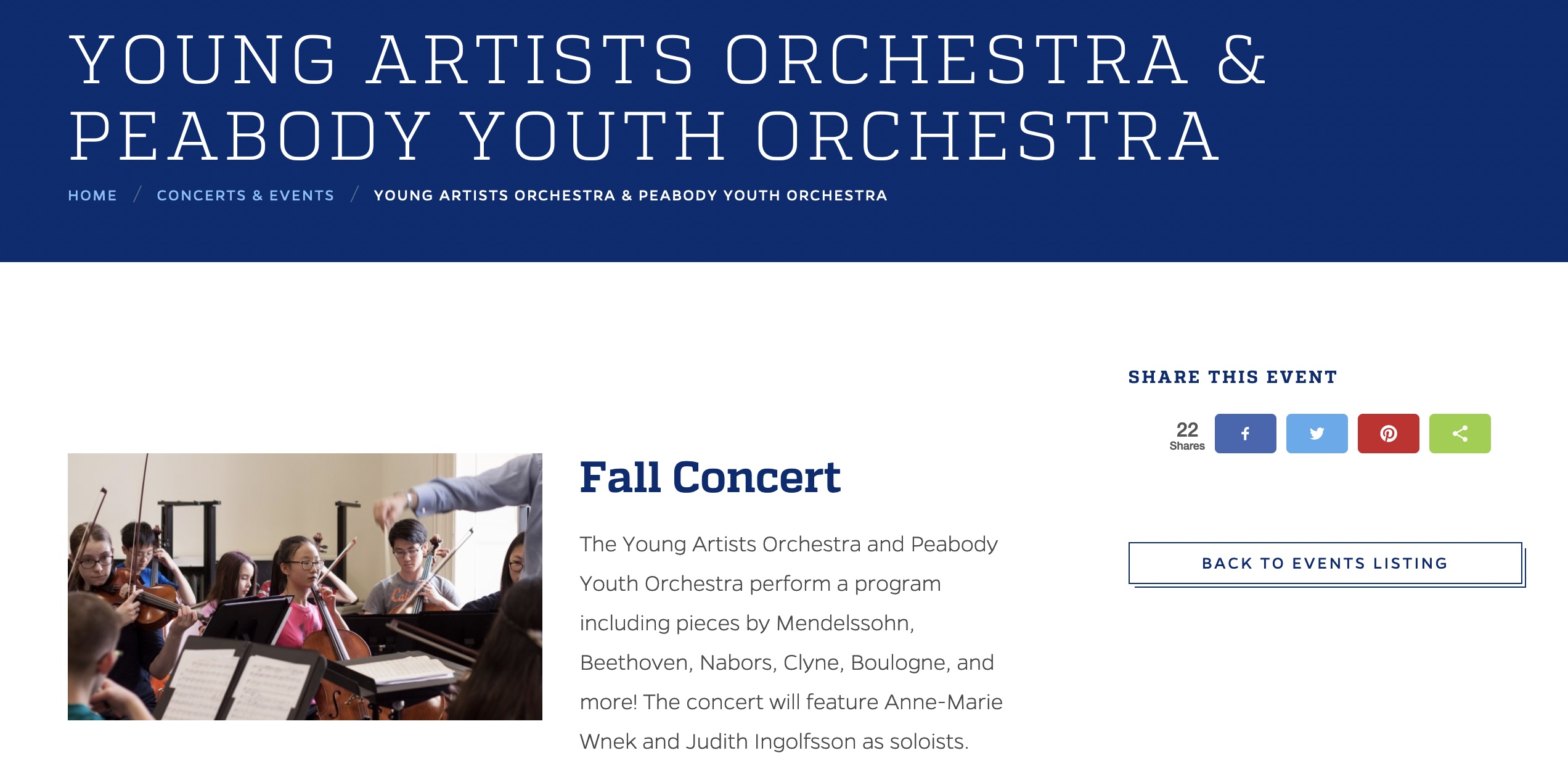Peabody Prep ORCHESTRA CONCERT
LIVE in Turner Auditorium SAT., NOV. 19th at 7pm. All welcome to this free concert IN PERSON at Turner Auditorium on the Johns Hopkins Hospital/East Baltimore campus and LIVESTREAMED at https://youtu.be/TvDR85OsOqY
The concert will also be broadcast live to patients via the TVs in patients rooms (CHANNEL 82).
Link to Peabody Prep announcement: https://peabody.jhu.edu/event/young-artists-orchestra-peabody-youth-orchestra/
